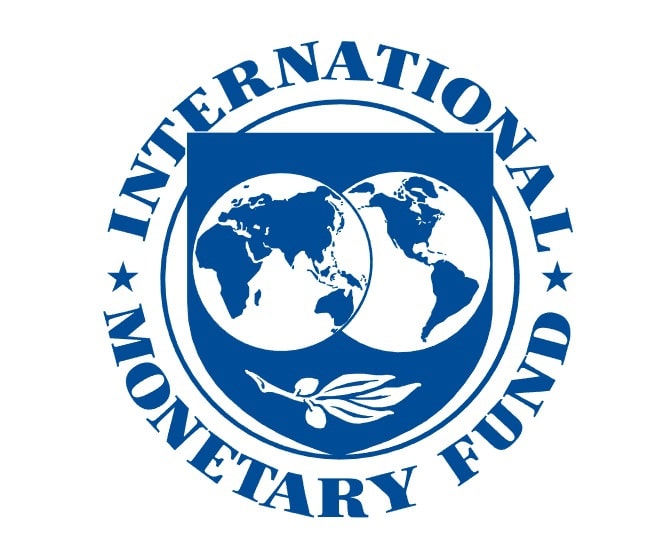IMF staff and the Democratic Republic of the Congo have reached a staff-level agreement on economic policies to conclude the fifth review of the three-year Extended Credit Facility (ECF) supported program; Growth remains resilient despite a difficult and uncertain environment, but the fiscal position has worsened, and inflation has accelerated; Prudent economic policies are warranted, including a limitation of non-essential spending, together with efforts to improve public financial management, monetary policy implementation, governance, and transparency.
An International Monetary Fund (IMF) team, led by Calixte Ahokpossi, held meetings with the authorities from October 18 to October 31, 2023, to discuss progress on reforms and the authorities’ policies in the context of the fifth review of the Democratic Republic of the Congo’s three-year arrangement under the Extended Credit Facility (ECF) . The arrangement was approved by the IMF Executive Board on July 15, 2021 , for a total amount of SDR1,066 million (about US$1.52 billion).
At the end of the mission, Mr. Ahokpossi issued the following statement:
“Based on a preliminary assessment of program performance and with an agreement on policies going forward, the Democratic Republic of Congo’s authorities and the IMF team have reached a staff-level agreement on economic policies to conclude the fifth review under the ECF arrangement. Subject to IMF management approval and to the IMF’s Executive Board consideration, expected by mid-December 2023, the completion of the review will make SDR152.3 million available to build up international reserves.
“Notwithstanding a difficult and uncertain environment, the economy remains resilient. Driven by a dynamic extractive sector, growth is expected to exceed 6 percent in 2023, despite falling cobalt prices and insecurity in the East. The depreciation of the Congolese franc weighed on inflation, which surged to 23.3 percent year-on-year in July 2023, before slightly easing below 22 percent in October 2023. To contain inflationary pressures, the central Bank of the Congo (BCC) increased its policy rate by 1400 basis points in August, to 25 percent.
“The government’s domestic revenue fell short of program projections in the first three quarters of 2023. In response, spending has been adjusted to prioritize security and elections expenditures and other current expenditures over the repayment of arrears.
“Gross international reserves increased moderately to about $5.0 billion at end-October 2023, as the external position faced several headwinds. The current account deficit remained high, dollar-denominated mining tax revenues were lower-than-expected, and the BCC intervened significantly in the face of exchange rate depreciation pressures.
“In a context of high uncertainties, it is important that economic policies remain prudent, and reforms continue.
“On the fiscal side, it is crucial to keep non-essential expenditures under control, rationalize spending on goods and services, while preserving social and priority public investment spending. In this context, the mission welcomed the authorities’ recent decision to increase pump prices and to repay part of the fuel subsidies arrears. Fiscal policies must be supported by continued reform efforts to improve the budget process, enhance fiscal governance, and improve spending efficiency. These efforts include operationalizing the General Directorate of the Treasury and Public Accounting, making progress towards the single Treasury account, and strengthening the control of spending under emergency procedures.
“On the monetary side, the BCC is expected to strengthen monetary policy implementation to contain inflationary pressures. Exchange rate flexibility remains key to absorbing external shocks and to safeguarding reserves. Foreign exchange market interventions should be limited to smoothing episodes of extreme exchange rate volatility. The IMF will also continue to support ambitious reforms to strengthen financial stability and improve access to banking services.
“The authorities need to step up efforts to improve transparency and governance, including through continuous commitment towards the timely publication of mining contracts and strong control institutions, such as the Cour des Comptes or the General Inspectorate of Finance. Decisive progress is needed to make effective the law on Anti-Money Laundering and Combating the Financing of Terrorism (AML/CFT), and to implement the action plan to exit the Financial Action Task Force’s grey list.
“The mission met with President Chief of Staff Guylain Nyembo Mbwizya, Vice-Prime Minister and Minister of Economy Vital Kamerhe, Vice-Prime Minister and Minister for Public Service Jean-Pierre Lihau, Minister of Finance Nicolas Kazadi, Minister of Employment, Labor, and Social welfare Claudine Ndusi, Deputy Budget Minister Elysée Bokumuamua Maposo, Deputy Finance Minister O’Neige N’Sele Mimpa, BCC Governor Malangu Kabedi Mbuyi, other senior officials, development partners, and representatives of the private sector and civil society organizations. The IMF team thanks the Congolese authorities for their cooperation and candid discussions.”
Distributed by APO Group on behalf of International Monetary Fund (IMF).
